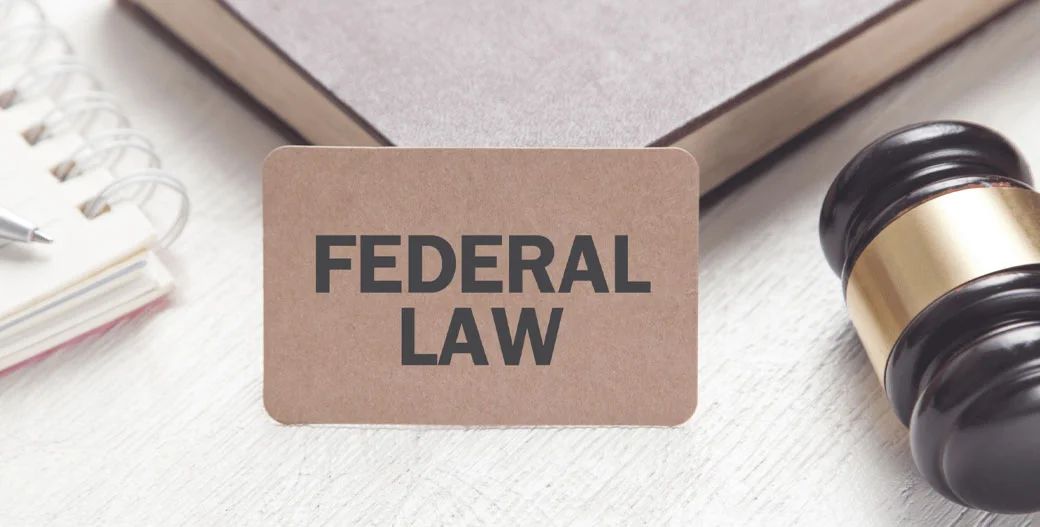Blog
Understanding Your Federal Sex Crime Charge

Typically, sex offenses are charged and handled at the state level – but not always. The federal government has jurisdiction to assume prosecutorial control over many any criminal case. There are, however, certain specific elements that can move a sex crime charge out of the Texas state courts and into federal court.
In this comprehensive post, we’re going to look at the most common reasons why federal prosecutors tend to step in and prosecute sex crime charges as federal crimes, what some of the most commonly charged federal sex crimes are, the consequences if you are convicted of a sex crime at the federal level, and what you can do to protect your rights and fight back if you are charged.
What Makes a Texas Sex Crime a Federal Offense?
Federal jurisdiction often overlaps with state jurisdiction, meaning a sex crime can be prosecuted at either the federal or state level depending on the circumstances. In some cases, both federal and state charges can be filed simultaneously.
Sex crimes are generally prosecuted under federal law when they involve circumstances that give the federal government jurisdiction. Specifically, a sex crime becomes a federal offense if it occurs on federal property, involves interstate activity, or is considered aggravated or extremely severe, thereby triggering federal criminal laws.
Let’s look at each of those factors in a bit more detail:
Interstate or International Activity
Transportation Across State Lines. If the crime involves transporting a person across state or international borders for illegal sexual activity, it falls under federal jurisdiction.
Use of Interstate Facilities. Crimes involving the use of interstate commerce, such as the internet, phone lines, or mail, to commit or facilitate a sex crime are often charged at the federal level.
Locations Where the Federal Government Has Jurisdiction
Federal Properties. Crimes committed on federal property, such as national parks, military bases, or federal buildings.
Native American Reservations. Crimes committed on Native American reservations can be prosecuted federally.
Violating Specific Federal Statutes
Mann Act (18 U.S.C. § 2421-2424). This act makes it a federal crime to transport any individual across state lines for the purpose of prostitution or illegal sexual activity.
PROTECT Act (18 U.S.C. § 2251-2260). This law addresses the exploitation of children, including child pornography and child sexual abuse.
Violence Against Women Act (VAWA). Includes provisions for federal prosecution of certain sexual offenses, especially when they involve interstate elements or occur on federal lands.
Federal Law Enforcement Involvement
When federal law enforcement agencies such as the FBI, Department of Homeland Security, or U.S. Postal Inspection Service are involved in the investigation and/or arrest, charges will often be prosecuted at the federal level.
Child Pornography

Cases involving child pornography often fall under federal law, especially if the material crosses state lines or involves the internet.
Human Trafficking
Cases of sex trafficking, especially those involving minors or coerced adults, are prosecuted federally.
Sex Crimes Commonly Charged at the Federal Level
Federal sex crime charges are serious offenses prosecuted under federal law, often involving severe penalties. Here are some common types of federal sex crimes and potential defenses:
Child Pornography. Ilegal acts related to this are detailed under 18 U.S. Code § 2252. The law covers possession, distribution, production, and receipt.
Specifically:
“(a)Any person who—
(1)knowingly transports or ships using any means or facility of interstate or foreign commerce or in or affecting interstate or foreign commerce by any means including by computer or mails, any visual depiction, if—
(A)the producing of such visual depiction involves the use of a minor engaging in sexually explicit conduct; and
(B)such visual depiction is of such conduct;
(2)knowingly receives, or distributes, any visual depiction using any means or facility of interstate or foreign commerce or that has been mailed, or has been shipped or transported in or affecting interstate or foreign commerce, or which contains materials which have been mailed or so shipped or transported, by any means including by computer, or knowingly reproduces any visual depiction for distribution using any means or facility of interstate or foreign commerce or in or affecting interstate or foreign commerce or through the mails, if—
(A)the producing of such visual depiction involves the use of a minor engaging in sexually explicit conduct; and
(B)such visual depiction is of such conduct;
(3)either—
(A)in the special maritime and territorial jurisdiction of the United States, or on any land or building owned by, leased to, or otherwise used by or under the control of the Government of the United States, or in the Indian country as defined in section 1151 of this title, knowingly sells or possesses with intent to sell any visual depiction; or
(B)knowingly sells or possesses with intent to sell any visual depiction that has been mailed, shipped, or transported using any means or facility of interstate or foreign commerce, or has been shipped or transported in or affecting interstate or foreign commerce, or which was produced using materials which have been mailed or so shipped or transported using any means or facility of interstate or foreign commerce, including by computer, if—
(i)the producing of such visual depiction involves the use of a minor engaging in sexually explicit conduct; and
(ii)such visual depiction is of such conduct; or
(4)either—
(A)in the special maritime and territorial jurisdiction of the United States, or on any land or building owned by, leased to, or otherwise used by or under the control of the Government of the United States, or in the Indian country as defined in section 1151 of this title, knowingly possesses, or knowingly accesses with intent to view, 1 or more books, magazines, periodicals, films, video tapes, or other matter which contain any visual depiction; or
(B)knowingly possesses, or knowingly accesses with intent to view, 1 or more books, magazines, periodicals, films, video tapes, or other matter which contain any visual depiction that has been mailed, or has been shipped or transported using any means or facility of interstate or foreign commerce or in or affecting interstate or foreign commerce, or which was produced using materials which have been mailed or so shipped or transported, by any means including by computer, if—
(i)the producing of such visual depiction involves the use of a minor engaging in sexually explicit conduct; and
(ii)such visual depiction is of such conduct;”

Sex Trafficking. Crimes related to trafficking people for the purposes of sex are related to forced labor and involuntary servitude, which essentially make it illegal to compel someone to work through force, threats, or legal coercion; or to provide or receive work from an individual in this position.
18 U.S.C. § 1591 expands upon this to clarify the role of sex trafficking:
“Whoever knowingly–
(1) in or affecting interstate or foreign commerce, or within the special maritime and territorial jurisdiction of the United States, recruits, entices, harbors, transports, provides, or obtains by any means a person; or
(2) benefits, financially or by receiving anything of value, from participation in a venture which has engaged in an act described in violation of paragraph (1), knowing that force, fraud, or coercion described in subsection (c)(2) will be used to cause the person to engage in a commercial sex act, or that the person has not attained the age of 18 years and will be caused to engage in a commercial sex act, shall be punished as provided in subsection (b).”
Internet Crimes Against Children. This covers all child pornography charges involving the internet, as well as:
18 U.S. Code § 2252B – Misleading domain names on the Internet (b). Knowingly using a misleading domain name to trick minor into viewing harmful material
18 U.S. Code § 1470 – Transfer of obscene material to minors. Knowingly giving or attempting to give obscene material to someone under the age of 16
18 U.S. Code § 2422 – Coercion and enticement. Knowingly using the internet to convince someone under 18 to participate in prostitution or any other criminal sexual activity
Sexual Abuse. Federal law actually breaks sexual abuse up into four separate charges, covered under:
18 U.S. Code § 2242 Sexual abuse – this statute makes it a crime for anyone who knowingly:
“(1)causes another person to engage in a sexual act by threatening or placing that other person in fear (other than by threatening or placing that other person in fear that any person will be subjected to death, serious bodily injury, or kidnapping);
(2)engages in a sexual act with another person if that other person is—
(A)incapable of appraising the nature of the conduct; or
(B)physically incapable of declining participation in, or communicating unwillingness to engage in, that sexual act; or
(3)engages in a sexual act with another person without that other person’s consent, to include doing so through coercion”

18 U.S. Code § 2243 – Sexual abuse of a minor, a ward, or an individual in Federal custody – The law breaks this down by those three victim categories:
Minor. Knowingly engaging or attempting to engage in a sex act with an individual at least 12 years old but younger than 16, or who is at least four years younger.
Ward. Knowingly engaging or attempting to engage in a sex act with an individual who is:
“(1)in official detention; and
(2)under the custodial, supervisory, or disciplinary authority of the person so engaging”
Individual in Federal Custody. Whoever, while acting in their capacity as a Federal law enforcement officer, knowingly engages in a sexual act with an individual who is under arrest, under supervision, in detention, or in Federal custody,
Federal jurisdiction includes places such as military bases and Indian reservations.
Interstate Transportation for Illegal Sexual Activity.
Transporting individuals across state lines for the purpose of illegal sexual activity, including prostitution or sexual exploitation.
Potential Defenses Against Federal Sex Crime Charges
Lack of Intent: Arguing that the defendant did not have the necessary intent to commit the crime.
Mistaken Identity: Demonstrating that the defendant was not the person who committed the offense.
Entrapment: Arguing that law enforcement induced the defendant to commit a crime they would not have otherwise committed.
Insufficient Evidence: Challenging the sufficiency or reliability of the evidence presented by the prosecution.
Consent: In some cases, showing that the alleged victim consented to the sexual activity, though this defense is limited in cases involving minors or incapacitated individuals.
Alibi: Providing evidence that the defendant was elsewhere when the crime occurred.
Violation of Constitutional Rights: Arguing that the defendant’s rights were violated during the investigation or arrest, such as unlawful search and seizure, which can lead to suppression of evidence.
What Kind of Penalties Can You Face for Federal Sex Crime Conviction?
Federal sex crime convictions often carry severe penalties, including lengthy prison sentences, significant fines, mandatory registration as a sex offender, and supervised release. The specific penalties depend on the nature and severity of the offense, prior criminal history, and other factors.

Take Federal Sex Crime Charges Very Seriously
Given the complexity and severity of federal sex crime charges, it is crucial to seek legal representation from an experienced federal criminal defense attorney. They can help navigate the federal legal system, build a robust defense, and advocate on behalf of the defendant throughout the legal process
Take the first step toward protecting your freedom by contacting us now
Testimonials
John T. Floyd is Board Certified in Criminal Law By the Texas Board of Legal Specialization
Request A Confidential Consultation
Fields marked with an * are required
"*" indicates required fields



















